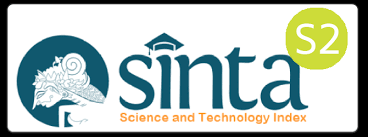Evaluation of Knowledge, Attitude, and Practice about the Rational Use of Medicines among Junior Residents in a Tertiary Hare hospital in India
Abstract
Rational use of medicine is an integral part of the health care system, which has become the weakest part due to various contributors like prescribers, producers, controllers, and consumers that have led to irrationality and increased the patient’s socio-economic burden. This study aimed to assess junior residents’ knowledge, attitude, and practice of rational medicine of medicine in a tertiary care teaching hospital. This cross-sectional observational study was conducted in the Department of Pharmacology at the tertiary care teaching hospital in Rajasthan, India, for a period of six months, from February 2021 to June 2021. All first- and second-year hospital residents, except those unwilling to participate, were included in the study. The first part of the questionnaire was about knowledge, and the second part was about the attitude and practice of junior residents regarding the rational use of medicines. The data was presented in the form of figures and percentages. Most residents (98%) were aware of the term rationality and rational use of medicines. Maximum numbers of residents (97%) were aware of the term essential medicines. The residents who were aware of drugs included in the National Essential of Medicine and term P-drug were 55% and 69%, respectively. Nearly 21% of residents prescribe drugs by generic names, while the majority (65%) prescribe both generic and brand names. Almost all (98%) of residents agreed that regular training is needed about the rational use of medicines to improve rational prescribing and 89% of residents think regular prescription auditing should be done. This study concludes that most residents were aware of the rational use of medicines, essential medicines, and the P drug concept. But they should receive regular training on the rational use of medications. This will prevent serious problems related to the inappropriate prescribing of medicines during their medical practice.
Keywords
Full Text:
PDFReferences
Akram A, Mohamad N, Meerah TSM, ZamZam R, Abdullah D. A pilot study-an action research to acquire clinical skill. Procedia - Social and Behavioral Sciences. 2012; 60: 236-40. DOI: 10.1016/j.sbspro.2012.09.373
World Health Organization. Promoting Rational Use of Medicines: Core Components. Geneva: World Health Organization; 2002. Available at: https://apps.who.int/iris/bitstream/handle/10665/67438/WHO_EDM_2002.3.pdf?sequence=1&is Allowed=y (Accessed on February 1, 2022).
World Health Organisation. Rational use of Medicines. Available at: https://www.who.int/activities/promoting-rational-use-of-medicines
Sontakke SD, Budania RJ, Paranjape SG. Evaluation of knowledge, attitude and behavior about rational use of medicines in second year medical students. International Journal of Basic & Clinical Pharmacology. 2013; 2(5): 617-21. DOI: 10.5455/2319-2003.ijbcp20131019
The Selection of Essential Medicines- WHO Policy Perspectives on Medicines. 2002;1-6. Available at http://apps.who.int/iris/bitstream /handle/10665/ 67375/WHO_EDM_2002.2.pdf?sequence=1 (Accessed on February 2, 2022).
WHO Model List of Essential Medicines – 22nd List (2021). Available at: https://apps.who.int/iris/bitstream/handle/10665/345533/WHO-MHP-HPS-EML-2021.02-eng.pdf (Accessed on February 2, 2022).
Revision of National List of Essential Medicines November 2015. Available at: https://main.mohfw.gov.in/sites/default/files/Recommendations.pdf (Accessed on February 2, 2022)
Parmar DM, Jadhav SP. The concept of personal drugs in the undergraduate pharmacology practical curriculum. Indian Journal of Pharmacology. 2007; 39(3): 165-7. DOI: 10.4103%2F0253-7613.42308
Bajait CS, Pimpalkhute SA, Sontakke SD, Dakhale GN, Jaiswal KM, Urade CS. Evaluation of knowledge, attitude and practice of rational use of medicines among clinicians in a tertiary care teaching hospital. International Journal of Nutrition, Pharmacology, Neurological Diseases. 2014; 4: 153-7. DOI: 10.4103/2231-0738.132673
Shivaraju TP, Savkar MK. Awareness of rational use of medicines among interns at rural teaching hospital. International Journal of Basic & Clinical Pharmacology. 2018; 7: 2184-9. DOI: 10.18203/2319-2003.ijbcp20184325
Hooli TV, Srikanth, Somashekara SC, Suraj B. Knowledge, attitude, practice of rational use of medicines among junior residents in a tertiary care hospital. International Journal of Basic & Clinical Pharmacology. 2017; 6(8): 2001-4. DOI: 10.18203/2319-2003.ijbcp20173286
National List of Essential Medicines of India 2011. Available at: https://pharmaceuticals.gov.in/sites/default/files/NLEM.pdf (Accessed on February 1, 2022)
World Health Organization Model List of Essential Medicines – 22nd List, 2021. Geneva: World Health Organization; 2021 (WHO/MHP/HPS/EML/2021.02). Licence: CC BY-NC-SA 3.0 IGO
World Health Organization. The Pursuit of Responsible Use of medicines: Sharing and Learning from Country Experiences. Available at: https://apps.who.int/iris/bitstream/handle/10665/75828/WHO_EMP_MAR_2012.3_eng.pdf?sequence=1&isAllowed=y (Accessed on February 10, 2022)
Priyadarshini BG, Kumar RP. A study on concept of P-drug selection among rural general practitioners. International Journal of Basic & Clinical Pharmacology.2017; 6(1): 155-8. DOI: 10.18203/2319-2003.ijbcp20164772
Jyothi DB, Rathod N. Knowledge, awareness, and practice of “P-drug” concept among postgraduate students in a tertiary care hospital. National Journal of Physiology, Pharmacy and Pharmacology. 2020; 10(3): 253-6. DOI: 10.5455/njppp.2020.10.02030202006022020
Manasa CR, Kalpana L, Veena RM, Lavanya SH, Kumar BVD. Assess the awareness of rational prescribing practices among medical interns in a tertiary care hospital: A questionnaire based study. International Journal of Basic & Clinical Pharmacology. 2019; 8: 1096-101. DOI: 10.18203/2319-2003.ijbcp20191607
Dakhale G, Pimpalkhute S, Bajait C, Raghute L. Evaluation of knowledge attitude and practice of rational use of medicine among interns and resident doctors in a tertiary care teaching hospital. Journal of Young Pharmacists. 2016; 8(2): 114-7. DOI: 10.5530/jyp.2016.2.10
Yadav AK, Sharma N. Drug use in medicine out-patient department: A prospective study in a tertiary care teaching hospital. International Journal of Current Research & Review. 2012; 4(6): 111-18.
Gupta R, Malhotra A, Malhotra P. Assessment of rational prescribing practice among interns: A questionnaire based observational study. International Journal of Research in Medical Sciences. 2018; 6(8): 2808-12. DOI: 10.18203/2320-6012.ijrms20183274
Drugs and Cosmetic Rules – Schedule H and Schedule H1. Available at: https://www.medindia.net/patientinfo/drugs-and-cosmetics-rules-schedule-h-schedule-h1-drugs.htm (Accessed on February 1, 2022)
Tandon P, Gupta V, Ranjan A, Gandhi P, Kotiyal A, Kapoor A. A Review on the Current Classification and Regulatory Provisions for Medicines in Drug & Cosmetic Act, in the light of present day context. International Archives of BioMedical and Clinical Research. 2017; 3(3): I-VII. DOI: 10.21276/iabcr.2017.3.3.26
Tekulapally K. Knowledge, attitude and practices of rational use of medicines among interns in a tertiary care teaching hospital in Telangana. Asian Journal of Medical Sciences. 2021; 12(6): 85-9. DOI: 10.3126/ajms.v12i6.33939
DOI: https://doi.org/10.15416/pcpr.v7i3.38647
Refbacks
- There are currently no refbacks.








